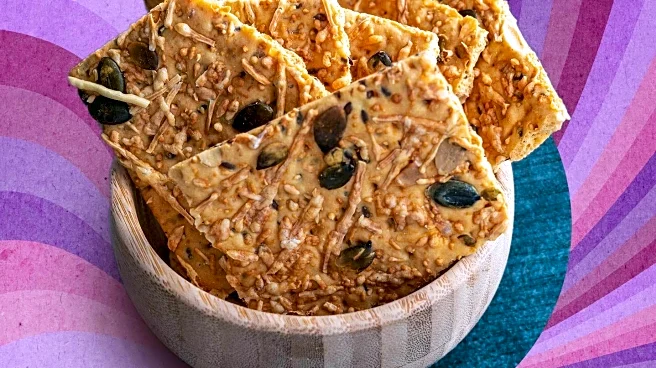What's Happening?
Cardiologists and dietitians emphasize the importance of incorporating fiber-rich snacks into daily routines to help lower cholesterol levels. High cholesterol is a significant risk factor for heart disease, a leading cause of death in the U.S. Experts suggest that consuming soluble fiber can bind cholesterol in the intestinal tract, preventing its absorption and thereby reducing LDL or 'bad' cholesterol levels. Additionally, fiber supports weight management by promoting satiety and interacts with hunger hormones to curb appetite. It also plays a role in reducing inflammation and regulating blood sugar levels, which are crucial for cardiovascular health.
Why It's Important?
The emphasis on fiber-rich snacks is crucial as 95% of Americans do not consume enough fiber, which is essential for managing cholesterol and overall heart health. By adopting this dietary habit, individuals can potentially reduce their risk of heart disease, manage weight, and improve blood sugar levels. This approach not only targets cholesterol but also addresses inflammation and insulin resistance, which are linked to cardiovascular diseases. The broader impact includes promoting a healthier lifestyle and potentially reducing healthcare costs associated with heart disease management.
What's Next?
Individuals are encouraged to incorporate fiber-rich snacks such as fruits, vegetables, nuts, and whole grains into their diets. Healthcare providers may continue to advocate for dietary changes as a preventive measure against heart disease. Further research and public health campaigns could focus on increasing awareness about the benefits of fiber and how to integrate it into daily meals. This could lead to a shift in dietary guidelines and recommendations from health organizations.









